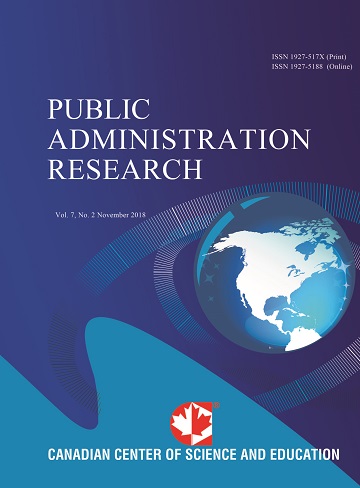Humanitarian Action and Intra-Continental Migrant Children’s Education: Evidence from the Governance at the Grassroots in Nigeria
- Taiwo Akanbi Olaiya
Abstract
How does humanitarian action at the grassroots shape support for children of intra-continental migrant? Despite a large volume of research outputs and public policy advocacy on migration, there has been little work on the crucial nexus between local humanitarian efforts and migrant children’s educational needs. Conceptually, we viewed humanitarian action beyond the traditional definition as a tool for emergency response. We included efforts aimed at dignifying migrant children with basic education and enhancement of their integration in the new location. Cross-sectional data obtained from agencies of government at the grassroots were employed to measure the effects of local humanitarian action on the education of migrant children. The finding showed that institutionalised humanitarian efforts provide real-time support for basic education of migrant children. Also, burdensome obligations and lack of financial independence for governance at the grassroots curtailed the magnitude of assistance rendered by local authorities. Using Talcott Parson’s functionalist theory, we suggested three mutually transformative approaches. First, constraints by the upper levels of government– State and Federal tiers– exacerbate financial incapacitation and, ultimately, impede humanitarian effort at the grassroots. Second, provision of critical humanitarian needs, such as migrant children’s education, fosters social integration and crime control among migrants. Finally, intra-continental migration is not debased by acculturation. The findings showcase the need for strengthening the financial capacity of governance at the grassroots to reinforce common interests between migrants and host communities.
- Full Text:
 PDF
PDF
- DOI:10.5539/par.v9n2p1
Journal Metrics
h-index (2017): 7
i10-index (2017): 6
h5-index (2017): 7
h5-median (2017): 13
Index
- CNKI Scholar
- COPAC
- CrossRef
- DTU Library
- EBSCOhost
- EuroPub Database
- Excellence in Research for Australia (ERA)
- Genamics JournalSeek
- Ghent University Library
- Google Scholar
- Harvard Library
- Infotrieve
- Jisc Library Hub Discover
- LOCKSS
- Mir@bel
- Norwegian Centre for Research Data (NSD)
- Open J-Gate
- PKP Open Archives Harvester
- Publons
- ROAD
- Scilit
- SHERPA/RoMEO
- Stanford Libraries
- Ulrich's
- UniCat
- Universe Digital Library
- UoS Library
- WorldCat
Contact
- Gabriel TaiEditorial Assistant
- par@ccsenet.org
